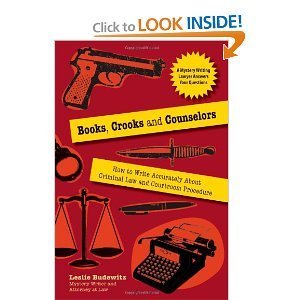Nancy Martin's Blog, page 7
November 2, 2011
Am I Writing For Smurfette?
[image error]
Am I Writing For Smurfette?
by Nancy Martin [image error]
Maybe I've been reading the wrong kind of books lately, but I wonder if it's time to institute a kind of Bechdel Test for novels?
If you don't already know, the Bechdel Test was created by Allison Bechdel (creator of a comic strip) with the idea of determining whether or not female characters had any remotely significant role in movies. Sure, women appear in lots of movies, but just because they're wearing little more than a G-string and carrying an automatic weapon doesn't mean they are "empowered" women who affect a story in any significant way. Allison came up with some simple criteria to decide if women were depicted as characters or . . . scenery.
Three questions make up the Bechdel Test:
Do two or more women appear in the movie, and do they have names?
Do they talk to each other?
Do they talk to each other about something other than a man?
Simple, right?
Not really. A vast number of movies have a character we can generically call The Girl, who stands in for the rest of her sex. Even movies that seems like they're going to give women a fair shake---well, give it the Bechdel Test, and—oops. Not so much.

I'm starting to think a lot of novels could use a breath of Bechdel, too.
Lately, I can't help noticing that television (gasp!) has developed some really great stories with women characters. Are you watching Homeland? Weeds? The Big C? Nurse Jackie? In all these stories, we're seeing complex women characters with independent, multi-faceted lives. And they pass the Bechdel Test with flying colors. (Pick your favorite TV show. Does it pass the test?)
Then I ran across Lisa Dodge, who's into feminist awareness and studying women in various media, and here she's particularly wondering if the females in a story are "portrayed exclusively in their relation to men." She came up with some questions for students, but I think they apply to those of us who write about female protagonists in popular fiction. Here are a few of Lisa's questions:
What is most important to this character?
What role do other female characters play in her story? Male characters?
Is the story driven by her wishes and decisions? If not, who is in charge?
How do other characters react to this character? What guides her interactions with other characters?
Is the main character's gender or sexuality important to the story? How might this story be different if the main character was male or of a different gender expression? How might it be different if the main character remained female but adhered to different standards of beauty?
What stereotypes of gender are present or absent in the portrayal of this character? How realistic are her world and relationships?
How similar are we to the characters in the story? What might our lives look like if we lived in their world? Do they accurately represent anyone we know?
Lisa asks: Is it possible to create an entertaining female character without relying on damaging stereotypes?
Good question.
In the mystery genre, I think we have an edge because we know our readers are interested in more than whether or not our heroine can find true love (although that's always a nice subplot) and because of the plots we write, our characters are inherently more Buffy than Bella, if you know what I mean.

Can you tell I'm at the beginning of a new book? I'm casting around, getting to know a new protagonist. She has me thinking about issues that concern women today---not the usual stuff I've explored before. (Will Nora Blackbird ever settle down with Mick? Will she get the child she yearns for? Can she keep her family legacy intact? Will she ever heal after enabling her husband's drug addiction? And—oh, yeah---can she solve the latest mystery in her world?) I've been thinking about my adult daughters and their contemporaries and stories appeal to them right now, in the world we live in. I'm thinking they're not all watching Kim Kardashian's wedding/non-wedding/whatever.

Sure, love and family are still worthy topcis. Career, too. But there's a lot of material to explore. (My children were raised in the latchkey era. Many of their friends went home to empty houses. What does that do to young teens? Especially in the age of terrorism?)
Here's the Smurfette Principle, also worthy discussion material:
So, what do we think, dear readers? Do our most beloved characters pass the Bechtel Test?
November 1, 2011
Getting Carded
Getting Carded
By Kathy Reschini Sweeney
First off - sorry this blog is late. Last night was Halloween and so forth. So since I am already apologizing for the time, I will also apologize for typos since I am writing this live and on the fly.
So - when was the last time you got carded? If you go to the movies at Lowe's in Pittsburgh, you get a free one - apparently they card everyone now. Because I look like many things, but 20 is not one of them.
A couple of years ago, near the end of a Locks of Love project (hair everywhere, including in my face all the time) I got carded at Best Buy over a video game for my son. A GAME.
 I remember dreading getting carded - of course, that was when the card I was using was not exactly the one issued to me by the Commonwealth of Pennsylvania. Funny how when you are 19 and cute (and who isn't at that age?) the bouncers don't seem to spend much time checking formal credentials, especially if you choose the right v-neck. That's right. I admit it - I used cleavage to manipulate. Anyone who hasn't really should try it out because - and no offense to the mature and gracious Men of The Blog - other men are stunningly dumbstruck if they think they are going to see a breast or two. Don't spend much time trying to figure it out - you end up with a Greek tragedy or some Freudian images you're simply better off without.
I remember dreading getting carded - of course, that was when the card I was using was not exactly the one issued to me by the Commonwealth of Pennsylvania. Funny how when you are 19 and cute (and who isn't at that age?) the bouncers don't seem to spend much time checking formal credentials, especially if you choose the right v-neck. That's right. I admit it - I used cleavage to manipulate. Anyone who hasn't really should try it out because - and no offense to the mature and gracious Men of The Blog - other men are stunningly dumbstruck if they think they are going to see a breast or two. Don't spend much time trying to figure it out - you end up with a Greek tragedy or some Freudian images you're simply better off without.
Then, I went throught the phase of being flattered by being carded. This did not last. Because once you hit 40, who gives a damn what some idiot sitting on a bar stool outside on the sidewalk thinks? It's not like these guys are known for their observational or critical thinking skills - they usually have no discernable neck.
 Now, getting carded irks me from a Constitutional standpoint. I get merchants requests because that helps prevent fraud, although so few actually do it, that it's laughable. Try writing "Ask for ID" on the back of your debit/credit card and see how many times people actually look at the damn thing. Even people who clearly have necks can be thick-headed too. But this business of people asking for your social security number to buy cold medicine? No. Freaking. Way. I don't even like my doctor's tracking data that way (that's how insurance companies do it too - your health care ID number is probably a not-so-cleverly disguised part of your SSN) and they have to comply with a ton of state and federal regs. You should know that you are not obligated to give out your SSN to everyone including the pizza delivery guy. And don't carry your SSN card in your wallet - geez - that is still one of the primary original souces to confirm your actual identity - if someone steals your wallet and they get your SSN card - buh-buy credit rating!
Now, getting carded irks me from a Constitutional standpoint. I get merchants requests because that helps prevent fraud, although so few actually do it, that it's laughable. Try writing "Ask for ID" on the back of your debit/credit card and see how many times people actually look at the damn thing. Even people who clearly have necks can be thick-headed too. But this business of people asking for your social security number to buy cold medicine? No. Freaking. Way. I don't even like my doctor's tracking data that way (that's how insurance companies do it too - your health care ID number is probably a not-so-cleverly disguised part of your SSN) and they have to comply with a ton of state and federal regs. You should know that you are not obligated to give out your SSN to everyone including the pizza delivery guy. And don't carry your SSN card in your wallet - geez - that is still one of the primary original souces to confirm your actual identity - if someone steals your wallet and they get your SSN card - buh-buy credit rating!
And all those "Special Member" cards that get you discounts at your grocery store/department store/gas station/strip club/electronics store/gun show/movie theater - they are great as long as you know that they are tracking and selling your data. Forwarned, and so forth.
 Finally, at age 50, one enters a whole new era of carding - the DISCOUNT phase. That's right, my friends - don't scoff at those pretty, red, white and blue AARP cards - those things are little gold mines. Hell, I don't mind telling anyone how old I am if I can get into the movies for half price - have you been to the movies lately? They're priced more like thee-ahhh-ter tickets than thee-ter tickets.
Finally, at age 50, one enters a whole new era of carding - the DISCOUNT phase. That's right, my friends - don't scoff at those pretty, red, white and blue AARP cards - those things are little gold mines. Hell, I don't mind telling anyone how old I am if I can get into the movies for half price - have you been to the movies lately? They're priced more like thee-ahhh-ter tickets than thee-ter tickets. 
What about you? Got carded lately?
OOPS - my fault, my fault, my most - you know
OOPS - I totally spaced that it was my day to blog. I could blame the cold medicine or the mulled cider with rum, but that doesn't really help, does it? Writing now and will have something up soon!
Kathy
October 30, 2011
Happy Halloween, Stingy Jack!
by Heather
Halloween! It's always been a big holiday in my family, when I was a child, and again, when I had children of my own. Hey, those kids are grown, but it's still  a big holiday. Coming through childhood with the Scottish and Irish, my home was filled with legends and fun, and my grandmother was convinced that the Irish alone were responsible for Halloween. She was just a little bit off.
a big holiday. Coming through childhood with the Scottish and Irish, my home was filled with legends and fun, and my grandmother was convinced that the Irish alone were responsible for Halloween. She was just a little bit off.
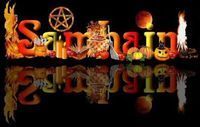 Samhain, an old pagan festival, was a night during which people gathered to light massive bonfires to ward off ghosts. It was the one night a year when the dead might rise. But Christianity came to the British Isles, and while many a good Christian scratched his head over the pagan rituals, Pope Gregory III knew how to win without fighting a battle; he made
Samhain, an old pagan festival, was a night during which people gathered to light massive bonfires to ward off ghosts. It was the one night a year when the dead might rise. But Christianity came to the British Isles, and while many a good Christian scratched his head over the pagan rituals, Pope Gregory III knew how to win without fighting a battle; he made  November 1st All Saints Day, and therefore the night before was an eve . . . you know, all hallow's eve. And so, in time the pagan ways died down and Christianity flourished, but the old ways never fell from favor. All Hallow's Eve remains a spooky night—one in which we wonder if indeed the spirits of the dead might rise!
November 1st All Saints Day, and therefore the night before was an eve . . . you know, all hallow's eve. And so, in time the pagan ways died down and Christianity flourished, but the old ways never fell from favor. All Hallow's Eve remains a spooky night—one in which we wonder if indeed the spirits of the dead might rise!
Now, to add to this, there was a fellow named Jack.

Rumor had it that Jack was a saucy fellow. (Arrogant, maybe?) He was known as Stingy Jack, because he wasn't about to share. He found himself drinking with the Devil one night, and he didn't want to pay up. He tricked the Devil 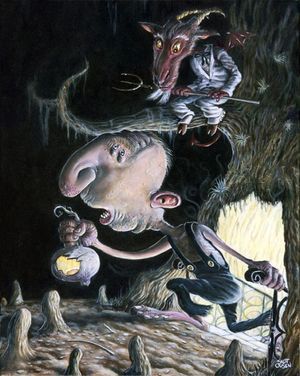 into climbing up an apple tree, and then he put crosses all around the trunk of the tree. Not only would he avoid paying his bill, but he made the devil promise not to take his soul if he let him down. Stingy Jack lived many years—continuing to be a stingy trickster—and then he died. He went to heaven, where St. Peter took one look at his record and said that there was no way he was getting into heaven. Jack decided to go see his old friend the Devil, but the Devil said that he'd vowed not to take his soul—and he would not.
into climbing up an apple tree, and then he put crosses all around the trunk of the tree. Not only would he avoid paying his bill, but he made the devil promise not to take his soul if he let him down. Stingy Jack lived many years—continuing to be a stingy trickster—and then he died. He went to heaven, where St. Peter took one look at his record and said that there was no way he was getting into heaven. Jack decided to go see his old friend the Devil, but the Devil said that he'd vowed not to take his soul—and he would not.
Jack was forced to roam the earth forever with no real place to go. He set a candle in a turnip and traveled the world, forever doomed to find a place where his soul might reside.
Now, because Jack might be out there running around, people started putting lights in their turnips or whatever they had available so that they could ward off Jack! Naturally, they became known as Jack-O-Lanterns. The custom traveled to America where there was an abundance of pumpkins (bigger and more convenient than turnips,) and so, carving out a pumpkin—and often giving it a nice scary face to ward off Jack and other lost or risen souls—became popular in America.
[image error]God knows, we do love a good holiday. It's the American tradition! So, what else could we do besides Jack-O-Lanterns?
The earliest costumes for the holiday go back to the late nineteenth century in Scotland where people began to dress up as "guisers." The first costumes were usually those of ghosts or spirits—a way to fool the real ghosts and spirits and keep them at bay. As you know, when customs get to America, we like to broaden them. This Halloween you'll see gorgeous costumes as well as witches, warlocks, vampires, ghosts and more. You'll see "sexy" costumes popular with teens and young adults, and you'll see fun costumes—like the whole gamut of the Fruit of the Loom . . . fruit. You might even see a mustard bottle  or two. We like dress up here.
or two. We like dress up here.
Candy? Oh, yeah, you got it! Trick or treat? Give to the spirits, lest they find you as nasty as old Stingy Jack!
However you look at it, Halloween is now fun. Not to weigh in too heavily on food, but there are always bad eggs out there trying to make something bad out of something good. Go forth and be merry—and be careful of course!
[image error]Holidays are good for the American economy. Hallmark needs those holidays, and they do a darned good job with them, as do other companies--haunted houses abound to scare and delight.
So, it's all good—or as good as we make it. I love Halloween. I'll be out there. For me? It's dress up and head to a wonderful Asian restaurant, Mr. Chu's. Mr. Chu is Chinese, and his beautiful wife is Japanese. The clientele are Jamaican and Bahamian, American, Cuban-American, and every other kind of American you can imagine. Doesn't matter where we're from—the holiday is now universal—or universally American. The food is outstanding. 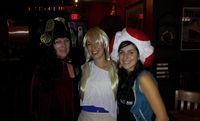 Oh, and it's a karaoke party. Should be fun and silly.
Oh, and it's a karaoke party. Should be fun and silly.
Where the holiday originated is intriguing—keeping it going is always what we make of it!
So what are your plans for the night?
October 29, 2011
Leslie Budewitz Guest Blogs
Nancy Martin sez: When I attend writers' conferences, my primary goal is to meet fun people. A couple of years ago I bumped into Leslie Budewitz--lawyer, reader, writer and a person who radiates good karma. (I firmly believe that making your own good karma pays off.) She's also the author of a great desk reference for crime writers--BOOKS, CROOKS AND COUNSELORS--which provides (much needed) legal advice, and I'm not talking about how to make bail after a great party. Please welcome her to TLC.
When I pick up a book, I read the acknowledgments first.
I've done this forever, at least since I started writing seriously. Eavesdropping. Peeking into the writer's private world, before I even read her novel, memoir, poems. Like spying, only not spying, because she's put it there for all of us to see. More like mining for the secrets to success, hoping they'll rub off on me.
There's all variety of acknowledgments. Gooey, sappy, hilarious. Mostly, names. Of agents and editors and critique partners. Of friends who listened to you natter about "the book" for years and never said "shut up." Not out loud, anyway. Parents and children and husbands and wives who put up with nights alone and too much take-out. Librarians who combed through archives to confirm a single fact. Translators thanked anonymously because they still live in the war zone, or their mother does.
The barista who remembers your order and never minds when you hold the corner table hostage all morning for the price of a double latte and a scone.
And people long dead who'll never read the work, but inspired it by what they wrote or said or did.
Ah, the tribe it takes.
I got to write my own acknowledgments this year, for Books, Crooks and Counselors. Harder than I thought. More fun, too. (And gad, yes, I forgot somebody, and yes, I've told her and sent her the book, and no, I'm not going to tell you who because I'd be too embarrassed. )
Earlier this month, at the local writers' conference, I gave a signed book to a friend. After years in a critique group, countless lunches and phone calls and emails, hours of encouraging and sympathizing and deleting my extraneous commas, she read the final ms., the whole danged thing. Over a weekend. On vacation. Five minutes after she took the book, she found me in the lunch line. "You put me in the acknowledgments." She positively glowed. Of course, I did, silly. That's what they're for. For making friends beam after years of crying with you over rejections and other traumas. For making your book better. For making your life better.
And I'll admit, when a woman from the same disbanded group published her first novel, an ebook, and told me she'd acknowledged each of us, I went online and looked. Not that I doubted her. I just wanted to see it. To recall for a moment all we gave each other. Because writing can be hard and lonely and full of quavering and doubt, and it felt all warm and buttery to know she persevered and succeeded and maybe I helped.
In the last few months, I've learned a lot about the art of being thankful. Mid-summer, my husband and I embarked on what we call the New Attitude Plan. (The acronym, NAP, is more than a little ironic.) We decided we were tired of feeling overwhelmed, like we had too much to do and weren't doing the things that mattered to us most. That we weren't feeling truly prosperous–not in the sense of financial security, or at least not just that. But in the sense of truly enjoying the richness of our lives, because the stacks of unread books and the lists of undone projects and the invitations we'd turned down led us to focus on what we lack and not on what we have.
So we changed. Not exactly overnight, but darned close. We put the Law of Attraction into action. You know it: What you think about attracts more of what you think about. Bemoaning what we lack draws more lack, while focusing on good things attracts more good things.
I know, it can sound a little woo-woo. But it's called a Law because it works.
So I've made gratitude practice my nightly ritual. Sometimes I hit on the big things, then go back to fill in the small ones. Thank you, Universe, for a really great Bouchercon panel. Thank you for the offer from Berkley.* Thank you for the agent I wanted wanting me. Thank you for a great cup of coffee. Thank you for the cat leaving the severed mouse head outside.
Sometimes I start with the morning. Thank you for sleep. And if I felt like I was awake half the night with Thoughts and Hot Flashes and Other Annoying Things, I say thanks anyway, because what you think about, you bring about. (Lest that bring about more cliches, give thanks for fresh metaphors while you're at it.) Sometimes I fall asleep before reaching breakfast. If I get past dinner, I'm in for a long night, unless I start over and look for the details I've missed. Thank you for the day job, for the opportunities it gives me. Thank you for eggs and English muffins. Thank you for my sweet hunny, next to me.
And your mother was right: When you send a thank you note, you get more and better presents.
So to all you readers, thanks.
And to all you authors who write the books we read, and express your gratitude on the acknowledgments page–thank you.
Leslie Budewitz is the author of Books, Crooks and Counselors: How to Write Accurately About Criminal Law and Courtroom Procedure (Quill Driver Books, October 2011). She is a practicing lawyer and a mystery writer living in northwest Montana. Read an excerpt and more articles for writers at www.LawandFiction.com
* That offer? The Food Lovers' Village Mysteries, set in NW Montana, will debut from Berkley Prime Crime in 2013.
And thank you, Nancy and TLC!
Headlines and Beverly Gray
 [Margaret: Please welcome one of my long time colleagues. Carolyn Hart and I met at the very first organizational meeting of a then-nameless group of women, a group now known as Sisters in Crime. She created SinC's fabled data base of libraries and bookstores and became its 5th president. Best known for her Death on Demand series set on "Broward's Rock" off the coast of South Carolina, she has written everything from gritty stand-alones to charming ghost stories. New York Times bestseller, Pulitzer nominee, winner of the Agatha and more awards than can be easily listed, Carolyn excels in writing the traditional mystery. For more about her books, visit her website: http://www.carolynhart.com/]
[Margaret: Please welcome one of my long time colleagues. Carolyn Hart and I met at the very first organizational meeting of a then-nameless group of women, a group now known as Sisters in Crime. She created SinC's fabled data base of libraries and bookstores and became its 5th president. Best known for her Death on Demand series set on "Broward's Rock" off the coast of South Carolina, she has written everything from gritty stand-alones to charming ghost stories. New York Times bestseller, Pulitzer nominee, winner of the Agatha and more awards than can be easily listed, Carolyn excels in writing the traditional mystery. For more about her books, visit her website: http://www.carolynhart.com/]
At the St. Louis Bouchercon, I was on a panel with four distinguished journalists and a former working journalist. I was the wren among the macaws because I spent only a year as a reporter and began writing fiction in my mid-twenties.
I didn't have their professional qualifications but I shared with them an abiding interest in journalism and in the importance of public truth.
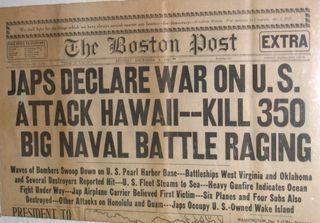 It all began with the stark blackness of headlines in the newspapers when I was young and with Beverly Gray, the girl reporter in the series written by Clair Blank.
It all began with the stark blackness of headlines in the newspapers when I was young and with Beverly Gray, the girl reporter in the series written by Clair Blank.
I was a child during WWII. The bigger and blacker the headlines, the more important the story. The newspapers - morning and afternoon editions - brought news on the progress of the war, the battles, the fears, the hopes, the casualties, rationing, scrap drives, Victory gardens.
I decided there could be no more important role in life than to be a newspaper reporter. I believed bringing truth - and that was the objective in those news columns - was perhaps the greatest contribution anyone could make to society.
I began to read the Beverly Gray stories, wonderful adventures that begin when 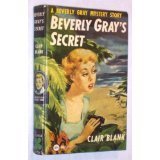 Beverly arrives at college with the aim of being a reporter. I followed Beverly through her college years and out into the world as a reporter for a New York daily. Beverly was intrepid, eager, and, as characters often do, she became a real figure in my mind. Beverly Gray went to college and became a reporter. I thought, "Maybe I can be a reporter, too."
Beverly arrives at college with the aim of being a reporter. I followed Beverly through her college years and out into the world as a reporter for a New York daily. Beverly was intrepid, eager, and, as characters often do, she became a real figure in my mind. Beverly Gray went to college and became a reporter. I thought, "Maybe I can be a reporter, too."
I worked on the Chief Justice in junior high, The Classen Life in high school, and the Oklahoma Daily at the University of Oklahoma. I had real life reporters as heroes then, Webb Miller, a foreign correspondent during the war, and Maggie Higgins, who covered the Korean war for the New York Herald Tribune. I had a trench coat. I smoked Chesterfields. (This was 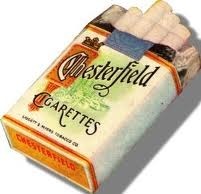 before the dangers of cigarettes were revealed, which came about because of investigative reporting and a refusal to be intimidated by the tobacco companies. Happily, I quit smoking more than 40 years ago.)
before the dangers of cigarettes were revealed, which came about because of investigative reporting and a refusal to be intimidated by the tobacco companies. Happily, I quit smoking more than 40 years ago.)
But a funny thing happened on the way to the newsroom. I met a young law student and my life took a different turn. After we were married and started a family, I didn't want to go back to work on a newspaper. I loved the writing but the hours are long and the pay (no change there today) is low.
That is when I first seriously addressed fiction. (I will admit to a long-ago mystery written when I was in high school. The protagonist? A reporter, of course! Happily, I have lost that ms.) I was in my mid-twenties, my husband Phil was in the JAG Corps and we were stationed at Ft. Leavenworth. I tried some short stories and had no success. I took the Writer Magazine. Every issue had a section in the back that told of contests. I saw a contest for a children's mystery for girls ages 8 to 12, sponsored by Calling All Girls Magazine and Dodd, Mead. I wrote the book and won the contest. The Secret of the Cellars was my first published book. My 47th mystery will be published next spring.
Among the many books is a series with a retired reporter as the protagonist, a novel that explores the degradation of today's 24/7 exploitive news cycle, two books set in journalism schools, four WWII novels, and a series that celebrates mysteries.
And it all began with the big black headlines and Beverly Gray.
Who inspired you?
October 28, 2011
Adventures in Farm Shares
I have been on a vegetable adventure this summer. I signed up for a weekly share in an organic farm co-op, and the variety is enormous. Now, I consider myself a big vegetable eater. I love vegetables. I eat lots of them. I thought I understood them.
Turns out I wasn't eating nearly as many as I thought. But that's the challenge of a farm share, right? Working with what's seasonal, even if it does get to be a lot of say…oh…cabbage by the end of said season. The whites of our eyes are tinted pale green.
Turns out, too, there are more vegetables in Heaven and Earth than I have dreamed of, Horatio.
 Take, for instance, the pretty little red bulbs that came in my share a couple of weeks ago. Christopher Robin (being from England where things grow much, MUCH bigger than they do here in Colorado) guessed that they were radishes. Since I've been growing all manner of radishes this summer, it seemed a reasonable guess. I sliced off a chunk and tasted it.
Take, for instance, the pretty little red bulbs that came in my share a couple of weeks ago. Christopher Robin (being from England where things grow much, MUCH bigger than they do here in Colorado) guessed that they were radishes. Since I've been growing all manner of radishes this summer, it seemed a reasonable guess. I sliced off a chunk and tasted it.
The river-bottom silt of beets filled my mouth. It was all I could do not to spit them out on the floor. I do not like beets, Sam-I-am. Do not like them boiled or roasted or sliced in salads. They always look so extraordinarily beautiful, and always taste like catfish. Blech.
Another adventure was kale. (We've been getting a LOT of kale!) I had not worked with it at all, mainly because it's always used for decoration in lawns and doesn't look particularly edible. [image error] But it's basically a hearty green veg, so I was game to layer it into the lasagna. I put the purple kind in a spinach-tortellini soup, and the result was a much more substantial texture than the spinach usually lends, and plus you get to feel like Super Nutrition Person because kale is, as my son tells me, what all the cool kids eat these days.
One of my great challenges is still eggplant. I love the way they look—that gleaming purple skin and cute little hat. When I'm out, I love eggplant parmiagiana. But before they came in the shares, I had never actually handled a fresh one, and my experiments thus far have been only mediocre. I'll keep trying, because it seems a valuable addition. (Tips welcome!)
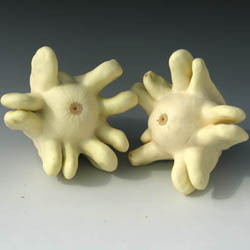 My favorite of the year so far, however, came in the share this week. A Yugoslavian finger squash. It looks kinda like a flying saucer, but honestly, if you've met one winter squash, you've met them all. I'll let you know how it comes out when I bake it, but I'm not expecting any major surprises.
My favorite of the year so far, however, came in the share this week. A Yugoslavian finger squash. It looks kinda like a flying saucer, but honestly, if you've met one winter squash, you've met them all. I'll let you know how it comes out when I bake it, but I'm not expecting any major surprises.
It's not all weird vegetables, of course. We've been feasting on fresh spinach again, and tiny green baby onions, and leeks. On my counter is a bowl piled high with plump baby pumpkins and acorn squashes in their military uniforms and the pale oblongs of butternuts. It's a treat to dig through the share each week and find out what's on the menu.
What vegetable will you absolutely not eat under any circumstances? Do you get a farm share like this? And please...give me some tips for making a decent dish with eggplant!
Photo credits: Beets-- 3liz4; kale--Ameetav Nangrani
October 27, 2011
The Road Taken Meets the Road Not Taken
By Nancy Pickard
Have you ever met yourself coming and going?
Have you ever come face to face with the person you might have been?
I saw one of my other selves this week.
She attended a luncheon with former employees of the Western Auto Company that used to be headquartered in Kansas City, Mo.
I'd agreed to be their guest speaker, never realizing I'd meet another version of myself there. Okay, she was only in my imagination, but she felt very real to me. While I stood at the mic, she sat at a table with the other retirees, looking at me. It was eerie. I never found out her last name. Maybe it's still "Wolfe," as mine was back then.
She--my other self--started working for Western Auto in 1972, which I did, as well. But she stayed there until she retired with full benefits, while I quit after three years. She earned a nice pension, that other Nancy, and health insurance. She had paid vacations and holidays; she had weekends off and the other perks employees used to receive.
When the time came to make the choice to stay or go--when she and I grew restless there--she chose to stay for the pension, the salary, the security. At the time, I called such benefits "golden handcuffs" and I threw those shackles off!
There have been hard times since then when I've thought she was wise to wear them.
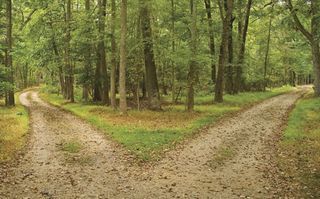
Because she stayed, she never met a cattle rancher and married him and changed her name to Pickard--which she would spend the rest of her life telling people how to pronounce. ("It's like the captain in Star Trek.") She never fell in love with the Flint Hills of Kansas, never knew a cowboy, never held a milk bottle for a blind and orphaned calf, never watched lightning silhouete cattle on a hillside in the dark.
The Nancy I saw yesterday never had a son named Nick, or if she did, he isn't my Nick. She may have her own children--I didn't find out. I don't know if she married, or how often.
She'd envy me, if she knew the son she doesn't have.  (See skier photo.) He's taking me to dinner next Monday night, and she won't be there.
(See skier photo.) He's taking me to dinner next Monday night, and she won't be there.
She didn't leave Western Auto and become a freelance writer, which led to becoming a poet, and then a short story writer and then a novelist. She never wrote a book. Never got a good review or a bad one, except performance reviews at Western Auto. Never got to be part of a revolution in an entire literary genre. Never met incredible writer-women who became her dearest friends. She may have her own fine friends, may have done greater things than I ever dreamed of doing. I don't know.
I heard that she travels now, for pleasure, a lot more than I do, but she never took off for Europe, back then, with her boyfriend. She didn't save her money during her last year of work at Western Auto so she could spend months with him in Europe after she quit. She didn't get her heart broken by him and then feel it healed again by the art and wine and food and beauty all around her. She didn't feel as if she'd been walloped by something larger than herself the first time she saw The Winged Victory in the Louvre in Paris, and she didn't sit on the steps beside it and bow her head, shield her face, and weep.
She has a nice smile. But I don't know that we'd pick each other out in a crowd to be friends. It doesn't sound as if we have a lot in common.
Maybe it was only my imagination--or maybe I'm justifying the choice I made that she did not--but she seemed to me to have sadness at the back of her eyes as she listened to my speech about the writing life. She laughed at some of my jokes, but at other times she drummed her fingers restlessly on the tablecloth.
Afterwards, she came up to buy a book.
"I started out as a writer," she told me. "I have a journalism degree, and I worked as a reporter for a couple of years. But I don't have any imagination; I could never have written novels, like you."
"You never know," I said, not knowing how to tell her that if she'd made my choice, she'd still have waited seven years for stories to start to come to her.
She didn't reply to my glib answer.
"Shall I sign this book to you?" I asked her.
"Would you? My name is Nancy, too."
So I signed, "To Nancy, With best wishes, Nancy Pickard."
I handed her the book, and then I watched her walk away, continuing her journey on the path I didn't take. 
 When two roads have diverged in your life, which one did you take that made all the difference (as the poet says)? Have you ever met that "other" self?
When two roads have diverged in your life, which one did you take that made all the difference (as the poet says)? Have you ever met that "other" self?
October 26, 2011
Pinching Pennies
Margaret Maron
"Use it up, wear it out,
Make it do, or do without."
— New England Maxim
Growing up, we never had much money, so hand-me-downs were a way of life. In good years, we got two pairs of shoes: school shoes in the fall, Sunday shoes at Easter. And like our clothes, they never really fit well because Mother always made sure "there was room to grow." So I would start the school year in shoes and clothes that were too loose and finish the year in clothes that were too tight and shoes that pinched my feet.
I never quite had Dolly Parton's Coat of Many Colors, but Mother was handy with a sewing machine. She could and did take dresses and coats apart and restyle them. When clothes were too ragged to wear, she would cut the good parts into squares and triangles and make quilts.
On a farm, nothing ever goes to waste. Our barns and shelters were full of dented buckets, coils of baling wire, scraps of lumber, and odd pieces of ironware because "you never know what will come in handy." It became such a way of life that it's a wonder I haven't wound up on one of those reality shows about hoarders.
My first impulse is still to see if I can't make it myself from stuff on hand rather than hiring someone to do it or buying it in a store. Over the years, I taught myself to build stone walls, lay blocks, frame in a window, and repurpose kitchen cabinets. I've caned chairs, resized doors, reupholstered furniture, wired junked lamps, and reglazed windows.
 When we finally added a real office onto the house a few years back, I wanted a big—a REALLY big—bulletin board, but the prices were shocking. A 4 x 6′ cork board cost five times more than I was willing to pay and it wasn't as big as I wanted anyhow. After rummaging around in a DIY store, I came home with a sheet of brown fiberboard. It was as ugly as homemade sin, but it was half an inch thick, measured 4 x 8′ and cost only $6. It soaked up four coats of white paint before all the brown disappeared. But when I nailed it up over my work counter and edged it out in scrap molding, I finally had the bulletin board I'd always dreamed about.
When we finally added a real office onto the house a few years back, I wanted a big—a REALLY big—bulletin board, but the prices were shocking. A 4 x 6′ cork board cost five times more than I was willing to pay and it wasn't as big as I wanted anyhow. After rummaging around in a DIY store, I came home with a sheet of brown fiberboard. It was as ugly as homemade sin, but it was half an inch thick, measured 4 x 8′ and cost only $6. It soaked up four coats of white paint before all the brown disappeared. But when I nailed it up over my work counter and edged it out in scrap molding, I finally had the bulletin board I'd always dreamed about.
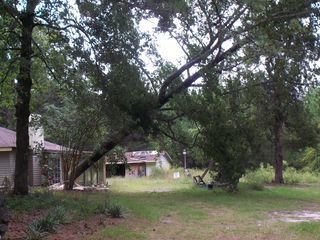 Recently we paid several hundred dollars to have a professional take down a 40-year-old sweet gum tree that endangered the foundation of a rental house we've acquired—a case of spending money to save money, I suppose. Actually, I wanted to cut the tree down myself, and twenty years ago, I would have. I also wanted to try my hand at sculpting a couple of the resulting logs with a chainsaw, but for some reason, my husband objected to that as well; and these days I try not to give him a heart attack. (Hospital stays are $$$$$)
Recently we paid several hundred dollars to have a professional take down a 40-year-old sweet gum tree that endangered the foundation of a rental house we've acquired—a case of spending money to save money, I suppose. Actually, I wanted to cut the tree down myself, and twenty years ago, I would have. I also wanted to try my hand at sculpting a couple of the resulting logs with a chainsaw, but for some reason, my husband objected to that as well; and these days I try not to give him a heart attack. (Hospital stays are $$$$$)
My all-time favorite money saver came when we were very young and nearly broke and still lived in New York. My husband was getting his master's and we had just had a baby. An elderly childless friend was going into assisted living and offered to sell us her homeplace: an 1880s wooden farmhouse with a turret and fifty acres of land only a few miles from the farm I grew up on. Her price? $5000. We didn't have $500, but I so wanted that dilapidated house. It had stained glass windows in the turret, heart pine flooring, and wraparound porches with gingerbread molding. But it had no indoor plumbing, the roof was shot, the wiring was pre-WWII, and there was extensive termite damage. It was only later that I came to realize how lucky we'd been because that house would have been a time and money pit. If we had bought it, I would have done most of the restoration myself and I would have poured every ounce of creativity I possessed into it, not into writing. Not all bargains are bargains, and sometimes an unanswered prayer can be the most economical thing that every happened.
What's yours?
October 25, 2011
Eat, Pray, Revolt
By Sarah
Pox on the House of Elizabeth Gilbert, author of the travelogue Eat, Pray, Love, parts of which I truly enjoyed...aside from its artificial premise. For those of you who haven't read it (or been subjected to the much more nauseating Julia Roberts movie bearing the same name), Elizabeth goes to Italy where she discovers FOOD! And wandering aimlessly.
[image error]Sure enough, there in the sunny outdoor restaurants of the romantic Trastevere section where I stayed last week, were my Doppelgangers: middle-aged American women inhaling deeply as they nibbled on fresh bufala mozzarella, their newly purchased pashminas precariously close to dipping into their sparkling Orvieto. I couldn't blame them since I was an Apostle Italia myself. (Florence: 2 pashminas for $10 after some negotiating. Hey, spiritual enlightenment comes in all forms.)
Granted, the thin, piquant prosciutto, the delicate slices of parmesan topping the tart arugula are unparalleled. The almond gelato, to die for, and the people, exquisite. Friendly, funny, expressive...I've never been among a more enjoyable group. Knowing a little Italian helps - just enough to show you don't know any Italian. Mi dispiace no parlo Italiano and you'll be rewarded with a smile, a joke, perhaps an extra chocolate.
As for the men? Sigh. The day's growth of black beard, the worn leather and vainly wrapped scarves 
are enough to make any woman swoon. You never see guys like that in Home Depot.
But let me tell you this: the meme that Italy's got the corner on life, that the only things that matter are good food, great wine, better sex and family? Total bullshit.
And here's why. Italy's a mess and not in a crazy, besotted, Trevi-fountain way. Italy's a mess because it stopped caring - though the question of whether the Italian people have ever cared about their institutions, government, environment is worth exploring, too. (See Catch-22.)
Being several thousands of years older than our nascent country, I believe Italy is US in the not-too-distant future. Graffiti (an Italian word, no?) covers the first six feet of every wall. Garbage overflows the trash cans. In the distance, factories spew grey, brown smoke and don't even get me started on the other smoke. Smoldering cigarettes in the hands of everyone from young, sexy Italian men (and there are plenty!) to old, fat grandmothers (plenty of those, too!) can turn even the lush Borghese Gardens into a dirty train station.
Never did I expect that visiting Italy would imbue me with a new appreciation for the anti-smoking laws and the American With Disabilities Act. I believe it would be virtually impossible for someone in a wheelchair to make it through Rome. Or someone with a wheeled suitcase to surmount the steps of the H bus.
But those are minor quibbles compared to the larger underlying message - and I'm not talking the layers of Roman civilization beneath the city. The message I got out of my trip is that history is destined to repeat itself, true. But even the greatest thinkers in the past are no match for the steamrolling effect of a growing apathos.
[image error]
For example, take the Largo di Torre Argentina, an excavated section of Rome about the size of a city block right downtown. Doric columns of a temple remain, as do the crumbling steps of Pompey's Theater where none other than Caesar himself was fatally stabbed. But you would have to be a Latin student to know this since that rather significant detail is hidden at the bottom of a weathered Plexiglass marker near the corner. These days, Largo di Torre Argentina is more famous as a shelter for homeless cats. Which means Caesar's last words were uttered in what is now, essentially, a grand litter box. Et tu, Kitty?
Or consider the crucial line from Catholic liturgy, "Quo vadis?" which is what the persecuted Peter asks the resurrected Jesus as Peter's fleeing Rome. Jesus's response is that he's going to Rome to be crucified again, thereby prompting Peter to turn on his heels and face his destiny. (Crucifixion upside down, alllegedly.) Now, Quo Vadis is the name of every other coffee shop/gelateria/tobacconist within the city walls. This in a city that treats Pope John Paul II like the Second Coming.
Democracy might not have been created in Rome, but it was codified here. And, yet, Silvio Berlusconi - a known criminal and despised prime minister - squeaked by with another vote of confidence, thereby turning the peaceful Occupy Rome movement into a crazed night of arson, bottle throwing and arrests. Young people are frustrated. They feel they have no say, no future - or so I was told. The next day, however, it was as if nothing had happened. Aside from a few more armed guards, it was all bufala mozzarella, sunshine and Orvieto.
One of the advantages of traveling is that it opens our eyes not only to other cultures, but to our own. I love that the Romans don't frankly give a damn, but that kind of 'tude sucks if you're interested in maintaining a democracy. It won't work. The Berlusconis will take power. The Lincoln Memorial will be overtaken by cats. Inalienable Rights will be a tourist shop on the Mexican border.
Then again, if history is also any indication, the sex and coffee will be awesome. Ciao!
Sarah


